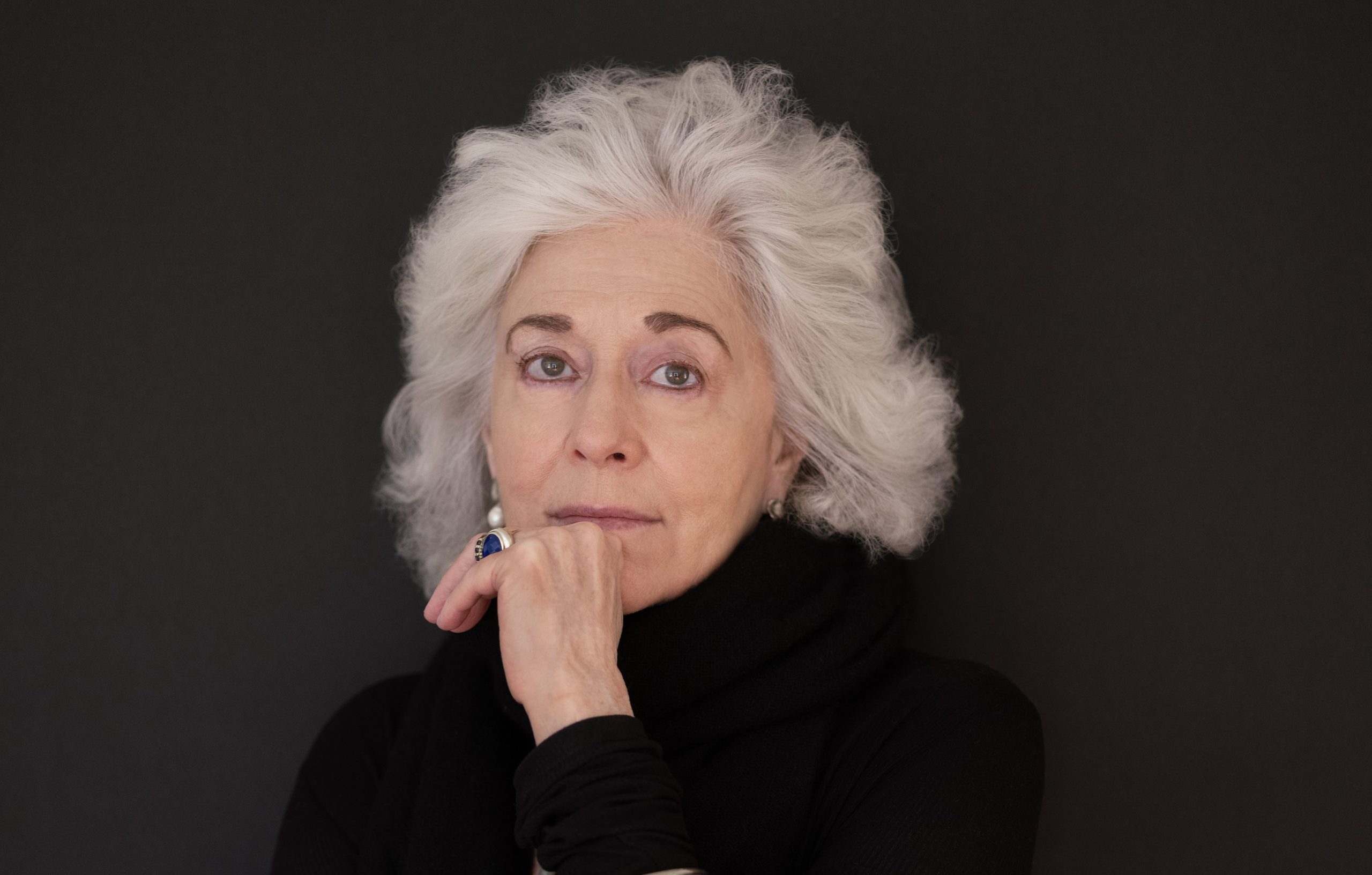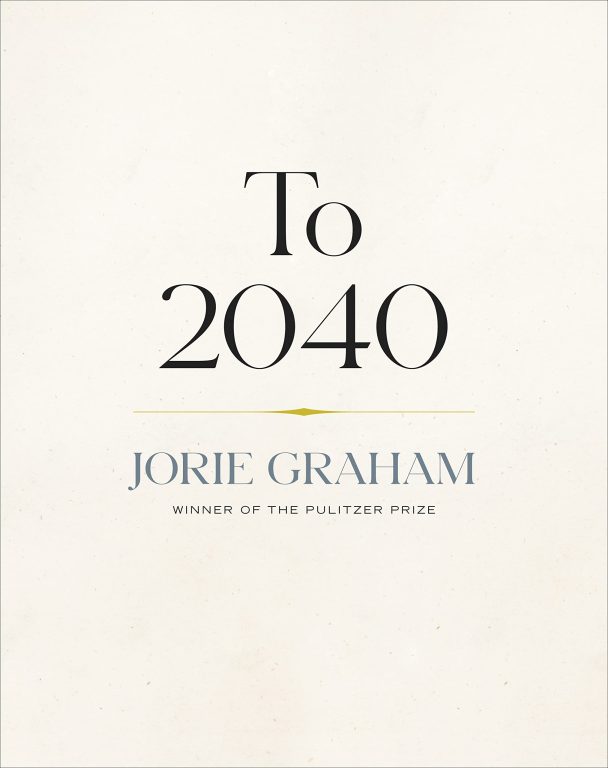
Jorie Graham was born in New York City, the daughter of a journalist and a sculptor. She was raised in Rome, Italy and educated in French schools. She studied philosophy at the Sorbonne in Paris before attending New York University as an undergraduate, where she studied filmmaking. She received an MFA in poetry from the University of Iowa.
She is the author of fifteen collections of poems. Her poetry has been widely translated and has been the recipient of numerous awards, among them the Pulitzer Prize, the Forward Prize, the Los Angeles Times Book Award, the International Nonino Prize, and the Rebekah Johnson Bobbitt National Prize for Poetry from the Library of Congress. She served as a Chancellor of The Academy of American Poets from 1997 to 2003.
She lives in Massachusetts and is currently the Boylston Professor of Rhetoric and Oratory at Harvard University.

Judges’ Citation
A question that by sparing its question mark assumes all the weight of an irrefutable and relentless answer (‘Are we extinct yet.’) lures us into Jorie Graham’s To 2040, a moving and unsettling vision of an imminent future, of a present already on the brink of perdition, yet at the same time a declaration of love to a world that will cease to exist or, if it continues to be, then without us to laud it.
Selected poems
by Jorie Graham
I left the protection
of my plan & my
thinking. I let my self
go. Is this hope I
thought. Light fled.
We have a world
to lose I thought.
Summer fled. The
waters rose. How
do I organize
myself now. How do I
find sufficient
ignorance. How do I
not summarize
anything. Is this mystery,
this deceptively complex
lack of design. No sum
towards which to strive. No
general truth. None.
How do I go without
accuracy. How do I
go without industry.
No north or
south. What shall I
disrupt. How find
the narrowness. The
rare ineffable
narrowness. Far below
numbers. Through and behind
alphabets and their hiving, swarming – here,
these letters. I
lean forward
looking for the anecdote
which leads me closer to
the nothing. I do not
lack ideas. I do not
fail to see
how pieces
fall together. I do
not fail to be
a human companion
to the human. I am
not skeptical. I
am seeking to enter the in-
conspicuous. Where the stems
of the willows
bend when I
step. There is dream in
them I think. There is
desire. From this height
above the ground I see
too much. I need
to get down, need to
get out of the reach
of the horizon. Are
these tracks from this
summer or how many years
ago. Are these
grasses come again now,
new. This is being
remembered. Even as it
erases itself it does not
erase the thing
it was. And gave you.
No one can tell the whole story.
Copyright © 2023 by Jorie Graham, To 2040, Copper Canyon Press
On the Last Day
- Jorie Graham’s Website
- Jorie Graham Takes the Long View The New Yorker
- Twitter Profile
- To 2040: Review The Atlantic